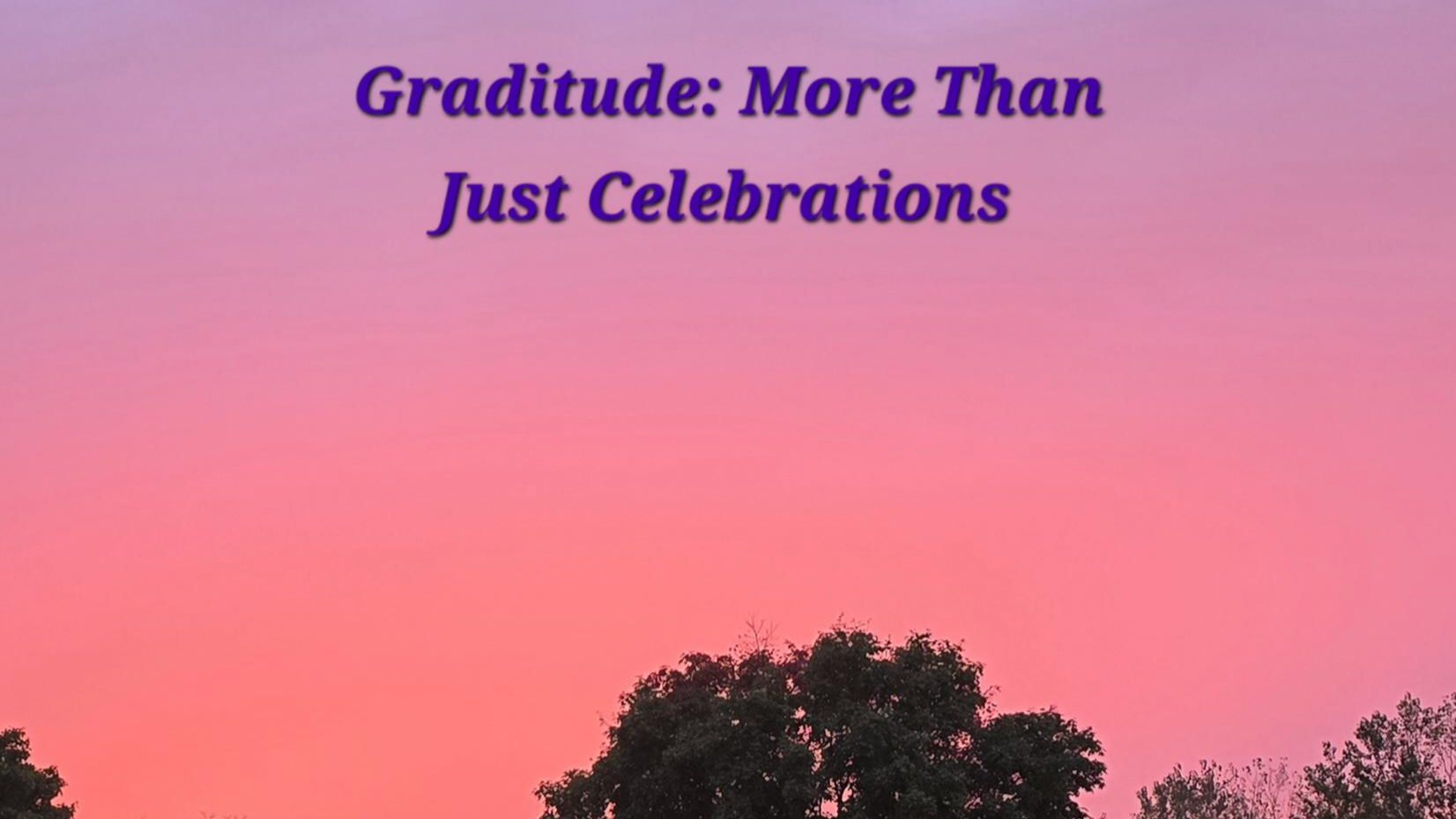Showing Up with Gratitude: Beyond the Celebrations
Oct 16, 2025
Gratitude is often equated with celebration: public appreciation, awards, and applause. These gestures matter. They lift morale, honor contributions, and remind us that we see and value one another. In education and leadership, gratitude that sustains a culture of growth and change goes deeper. It begins not with applause but by listening with humility, curiosity, and presence.
Showing up with gratitude means recognizing both visible successes and unseen effort. It means valuing the courage it takes for educators to name challenges, question systems, or share a concern. True gratitude, then, is not only about celebrating what is going well, but also about honoring those who trust us enough to name what is not.
Listening as Gratitude in Action
In her work on transformational coaching, Elena Aguilar (2013, 2018) reminds us that effective leaders and coaches listen through multiple lenses: emotional, cultural, and systemic. One of those, the listening lens of humility, helps us slow down our own need to respond or fix. Aguilar describes humility as “listening without assuming you know the answer.” This stance is essential for leaders who seek to understand the complex realities that educators face.
When leaders listen with humility, they communicate something powerful: your experience matters. They make space for truth-telling and reflection. This type of listening creates what Amy Edmondson (2019) refers to as psychological safety, which creates an environment where individuals feel safe to take interpersonal risks, such as offering feedback or sharing concerns, without fear of judgment or retribution.
Leaders who practice this kind of gratitude-centered listening often find that it deepens trust and strengthens collective problem-solving. It allows for shared ownership of both challenges and successes, transforming gratitude from a gesture into a practice.
Gratitude isn't just in celebration; it's shared struggle, honest conversation, and forward movement.
Recognizing the Weight Educators Carry
Educators lift enormous weights every day, whether it be academic expectations, emotional support, family engagement, or community connection. They do this not just because it’s their job, but because they care deeply. This care, while admirable, can also lead to exhaustion, compassion fatigue, and feelings of invisibility.
As leaders, our role is not just to say thank you, but to notice and respond with empathy. Instead of assuming what support looks like, we can ask:
🧡What are you carrying right now?
❤️How can I support you in a way that’s meaningful to you?
🧡How do you want to be acknowledged or celebrated?
Each of these questions reframes gratitude from a one-directional expression (“I appreciate you”) to a shared inquiry (“What do you need?”). It centers the educator’s voice and restores balance to the relational dynamic between leader and staff.
Honoring the Courageous Voices
True gratitude includes the voices of those who bring challenges to the surface. These educators often risk vulnerability to express concern or identify a barrier that others might overlook. When they do, it signals something significant: trust exists here.
Rather than seeing these conversations as difficult, leaders can view them as moments of opportunity. When someone brings forward a hard truth, the most powerful response begins with thank you. This act of acknowledgment reinforces safety and models emotional intelligence.
As Aguilar writes, “When we listen deeply, we build relationships that can hold the weight of transformation.” By thanking those who speak up, leaders cultivate a culture where honesty and growth coexist: a hallmark of resilient systems.
From Celebration to Collaboration
When gratitude becomes embedded in daily practice, it shifts from being an event to being a habit. Celebration still has its place, but gratitude as a form of leadership goes further. It invites collaboration, reflection, and shared accountability.
Consider these reflective practices that can help integrate gratitude into leadership routines:
📌Begin meetings with a gratitude round: highlight not only successes but moments of courage, learning, or perseverance.
📌Model curiosity before correction: pause and ask clarifying questions before offering solutions.
📌Acknowledge effort publicly and support privately: ensure that recognition feels authentic and restorative.
📌Follow up with action: gratitude that ends with “thank you” is incomplete; gratitude that leads to system-level change demonstrates integrity.
When gratitude takes this form, it no longer feels performative; it feels relational. It sustains motivation and connection across the team, especially in moments of uncertainty or fatigue.
Walking Forward Together
Gratitude, when practiced deeply, is a bridge. It connects the personal with the collective, the celebratory with the challenging, the individual voice with the system’s purpose. Leaders who show up with gratitude don’t stand above the work; they stand with their teams, in partnership.
As Aguilar notes, transformational change requires “both courage and compassion.” Gratitude helps us access both. It grounds us in humility and reminds us that leadership is not about having all the answers. It’s about creating spaces where answers can emerge together.
So, this week, take a moment. Not just to celebrate, but to listen. Notice who has trusted you with their truth. Thank them for their courage. Ask how you can walk with them in the work ahead. Gratitude isn’t just how we end a conversation; it's how we begin one.
Gratitude is not a leadership trend; it’s a transformative stance. When practicing through humility, active listening, and acknowledgment of courageous voices, it sustains both people and systems. It reminds us that progress in education is not built solely on programs or plans, but on trust, dialogue, and shared responsibility. When we show up with gratitude, not only to celebrate but to understand and act, we strengthen the hearts of our schools and the humans who make them thrive.
References
Aguilar, E. (2013). The Art of Coaching: Effective Strategies for School Transformation. Jossey-Bass.
Aguilar, E. (2018). Onward: Cultivating Emotional Resilience in Educators. Jossey-Bass.
Edmondson, A. (2019). The Fearless Organization: Creating Psychological Safety in the Workplace for Learning, Innovation, and Growth. Wiley.
Heifetz, R., Grashow, A., & Linsky, M. (2009). The Practice of Adaptive Leadership: Tools and Tactics for Changing Your Organization and the World. Harvard Business Press.

